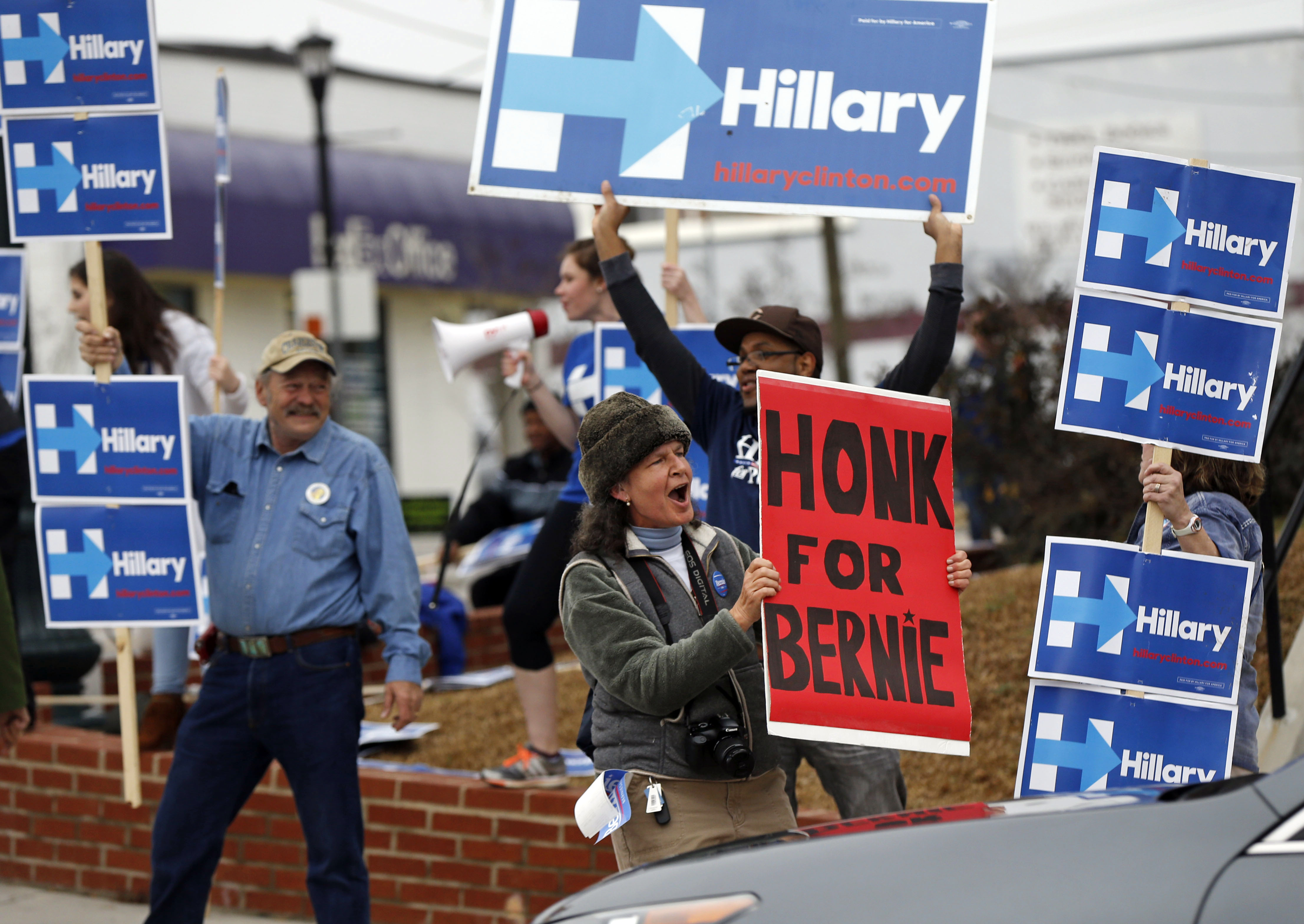American socialists confront their Hillary Clinton problem
How leftists are reconciling their desire to challenge belligerent centrism with defeating Donald Trump


A free daily email with the biggest news stories of the day – and the best features from TheWeek.com
You are now subscribed
Your newsletter sign-up was successful
The Democratic National Convention featured many events from left-wingers not terribly enamored with the state of mainstream Democrats, from "Bernie or Bust" protesters to the Working Families Party. Among those were the Democratic Socialists of America, who organized a socialist caucus during the convention.
It was a revealing window into a strengthening American left that is attempting to navigate the central problem of any reform movement attempting to operate inside the U.S. constitutional system: how to further a movement based on moral clarity and righteousness while making necessary tactical compromises.
The biggest problem for leftists is Duverger's Law — the tendency of any plurality-rule election (like for the U.S. president) to develop into a two-party system. American third parties, especially at the national level, face the almost insuperable obstacles of worries about vote splitting and desire for actual victory — thus the decision of the Working Families Party to work partially within the Democratic Party.
The Week
Escape your echo chamber. Get the facts behind the news, plus analysis from multiple perspectives.

Sign up for The Week's Free Newsletters
From our morning news briefing to a weekly Good News Newsletter, get the best of The Week delivered directly to your inbox.
From our morning news briefing to a weekly Good News Newsletter, get the best of The Week delivered directly to your inbox.
Only somewhat smaller problems are the existence of midterm and off-year elections, which crater turnout among left-leaning demographics, massive Republican gerrymandering, and the grotesquely unrepresentative Senate. All in all, it's a tough row to hoe.
It's worth noting that in a proportional parliamentary system, this would be a complete non-issue. Everyone could vote for the party of their choice without having to endlessly litigate whether voting for the left-winger in the primary is an unacceptable risk, or whether voting for the Democratic nominee in the general is an unacceptable compromise, and on and on. Liberal and leftist parties would simply try to get as many votes as possible. And should the left as a whole win the election, the biggest party in that faction would run the government.
But that is not the American system, and there's little prospect of changing it. So for the foreseeable future, leftists who want to engage with politics must seize whatever tactical ground they can, while maintaining a grasp of the moral perspective that inspired that political engagement in the first place. That might mean issue-based activism, it might mean protests, or it might mean pushing the Democratic Party to the left as Bernie Sanders has done.
The speakers at the DSA meeting evinced a deft and realistic understanding of these facts. "I am in the Democratic Party because that is where the power is," said Rahel Biru, a co-chair of the Brooklyn DSA chapter. "We don't want to make the classic mistake, in which we think liberals are our enemy. They're not our friends...[but] they are not the main danger," said Bob Master, legislative director for the Communication Workers of America and co-chair of the New York WFP. That danger is Donald Trump, of course.
A free daily email with the biggest news stories of the day – and the best features from TheWeek.com
Better still, the panel articulated a clear understanding of the heavily-minority terrain in which any socialist movement must organize. Sanders lost because he had not built the relationships within the African-American community that Clinton has, said Michael Lighty, the political director of the National Nurses Union. But fundamentally, "white workers and black workers have shared demands." Any future political action must have a racial justice lens "right at the center," added Master.
Still, there was some resistance to the idea that Hillary Clinton simply must become the next president. Only she is in position to defeat Trump — though that can mean her winning and then "immediately start organizing against her," said Lighty.
But when Master went so far as to say the candidacy of the Green Party's Jill Stein "is a danger," at least when it comes to swing states, it prompted palpable discomfort and a storm of boos from a woman who said she was a candidate for the Virginia state legislature. "I will not support corruption!" she yelled, before storming out.
The bloodless tactical argument for ensuring Clinton makes it to the White House, at least for the relatively few people who live in swing states, is basically airtight. But this runs into the desires and beliefs that motivate actual human beings to participate in politics. Clinton and the political movement she represents are simply despised by a great many leftists, with much justification. Democrats have been promoting milquetoast domestic policy, and capitulating to or participating in belligerent militarism, for an entire generation. It's gruesome to be faced with a choice between that and Donald Trump.
Still, it seems most people can probably thread this political needle, at least grudgingly. Some will bail or give up in despair, but the majority will be there after Clinton takes office, organizing for egalitarian policy and against imperialism.
Ryan Cooper is a national correspondent at TheWeek.com. His work has appeared in the Washington Monthly, The New Republic, and the Washington Post.
